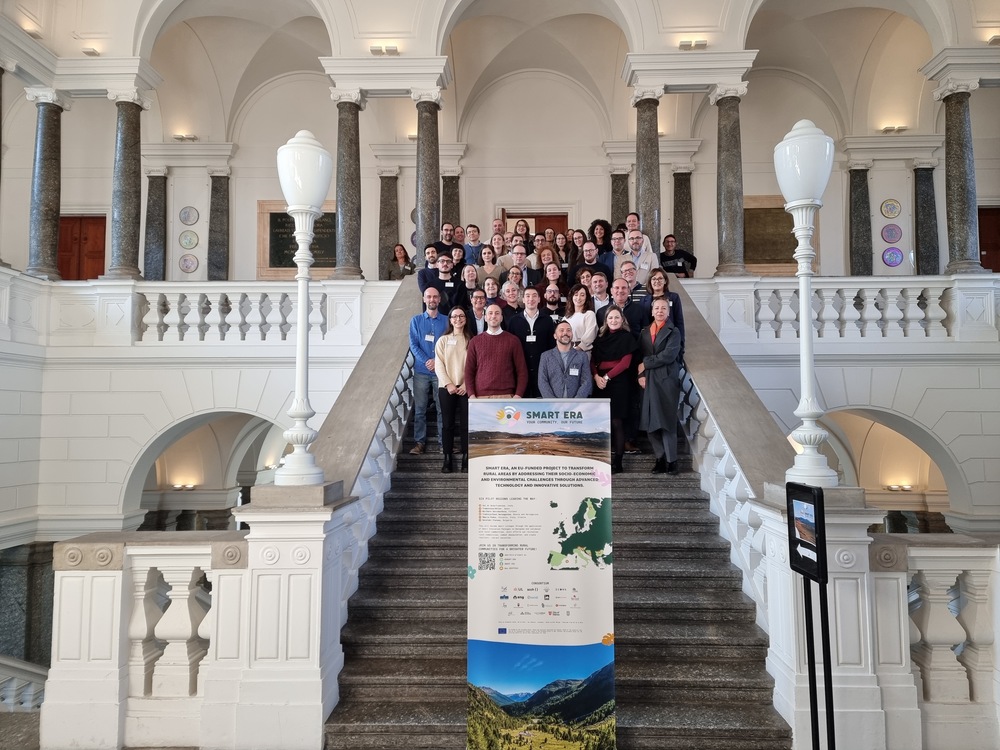From local challenges to european impact: the journey of SMART ERA's pilots
The SMART ERA project has wrapped up its first year, marked by the plenary meeting in Milan on December 3-4, 2024. During this event, partners from across Europe gathered to reflect on the progress made so far and to plan for the next phase of the project. As SMART ERA celebrates the first year of this journey, it is inspiring to look back at the work of the six pilot projects, each addressing sustainability challenges in its unique way and driving positive change in rural communities across Europe.

One of the key pilots is in Val di Sole, Italy, where the focus has been on sustainable local development, tapping into the region’s rich natural resources like forests and dairy farms. Over the past year, the project has worked closely with the local community to strengthen local economies and build capacity through data-driven systems. The ongoing collaboration has empowered locals to manage and protect their resources, setting the foundation for a more sustainable future.
Moving west to Spain, the pilot in Tramuntana-Sóller is using digitalisation to drive change in the region’s tourism, agriculture, and mobility sectors. Here, the emphasis has been on creating a digital ecosystem that helps residents and visitors alike make responsible, sustainable choices. The community has embraced digital skills development, and the project has successfully balanced the growth of local economies with environmental preservation, ensuring a more sustainable way forward for this picturesque region.

In Northern Ostrobothnia, Finland, the challenges are different, given the vast and sparsely populated landscape. The pilot here has worked to overcome geographical barriers by focusing on co-creating new businesses and developing platform-based models that foster local ownership and engagement. The success of this initiative has been in bringing communities together to create sustainable solutions that address the region’s unique needs.
Further south in Bosnia and Herzegovina, the East Herzegovina pilot has been focused on transforming the region into a rural tourism destination. The project has highlighted the area’s rich cultural, natural, and gastronomic heritage, raising awareness among locals about the economic potential of rural tourism. By promoting local products and traditions, the project is helping preserve the region’s heritage while also opening up new opportunities for sustainable development.

In the border region of Šmarje/Padna, spanning Slovenia, Italy, and Croatia, the focus has been on sustainable territorial development and mobility. The cross-border collaboration has fostered local participation in testing mobility solutions and improving digital skills. By engaging residents in hands-on activities and events, the project has built a sense of ownership and a shared vision for greener transportation solutions, helping unite communities across borders for a more sustainable future.
Lastly, in the Devetaki Plateau of Bulgaria, the pilot has focused on sustainable rural development, with particular attention to smart waste management and healthcare access. The first year of the project saw local communities, SMEs, and authorities come together to discuss key issues such as telemedicine and waste management. The creation of a data dashboard will be a crucial tool in improving healthcare access in rural areas, while the focus on digital skills has helped promote smart solutions to enhance the quality of life in the region.
As these pilots continue to evolve, they are proving that local solutions can create lasting european impact. The SMART ERA project exemplifies how collaboration, innovation, and active community involvement are essential to shaping a more sustainable future. Looking ahead, the lessons learned from these initiatives will continue to guide efforts to scale up successful solutions, strengthen communities, preserve resources, and promote sustainable development across Europe.





